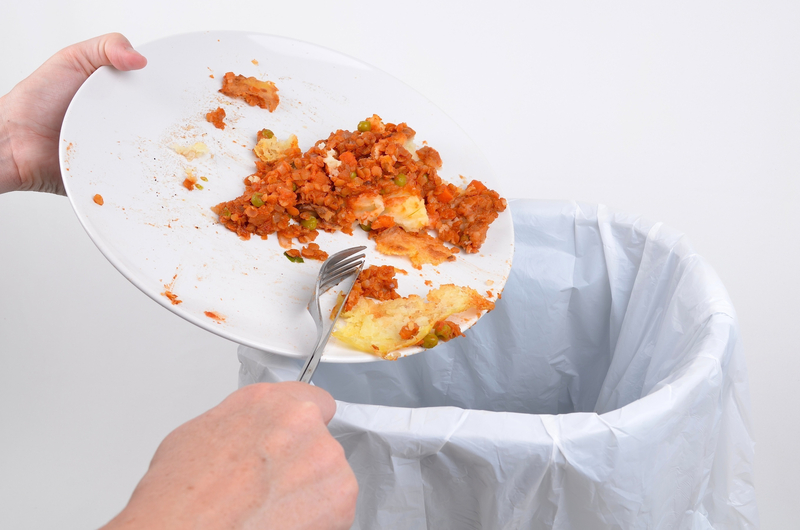How to Cut Costs When Getting Rid of Bulky Waste Items
Properly disposing of bulky waste items--such as old furniture, appliances, mattresses, and garden refuse--can often seem expensive and complicated. Whether you're moving, decluttering, or just updating your home, it's important to find cost-effective and environmentally friendly ways to handle large, unwanted items. In this comprehensive guide, we'll explore practical strategies for cutting costs when getting rid of bulky junk and provide helpful tips to make the disposal process more manageable and affordable.
Understanding Bulky Waste Items and Their Disposal Challenges
Bulky waste refers to large household items that are too big to be accepted through regular curbside trash collection. Examples include sofas, wardrobes, washing machines, refrigerators, garden debris, carpets, and mattresses. Disposing of these items can be costly due to their size, weight, and sometimes hazardous components. Many municipalities charge extra fees for collecting or accepting these items, and private junk removal services can quickly add up.
Reasons for High Disposal Costs
- Special Handling Requirements: Some items need to be dismantled or require expert handling (for example, refrigerators with refrigerants or electronics).
- Volume and Weight: Landfill fees are often calculated based on weight and volume, making large items pricey to dispose of.
- Transportation Needs: Not everyone owns or has easy access to vehicles suited for hauling big, heavy objects.
- Environmental Regulations: Some items include hazardous materials necessitating additional processing or recycling steps.

Effective Ways to Cut Costs When Disposing of Large Items
By planning ahead and exploring multiple disposal methods, you can significantly reduce the expense of getting rid of your unwanted bulky items. Here's a breakdown of your main options, along with actionable tips to save money:
1. Sell or Donate Large Unwanted Items
One of the most cost-effective and sustainable ways to clear out bulky junk is to keep items out of the landfill entirely by giving them a new life. Selling or donating has multiple benefits: it's eco-friendly, helps others, and can even put cash in your pocket.
- Sell Online: Platforms like Facebook Marketplace, Craigslist, OfferUp, and eBay offer local selling options that make it easy to connect with buyers who will pay for-or at least pick up-items like furniture, exercise equipment, or appliances. List items for free for quicker removal if need be.
- Donate to Charity: Many charitable organizations accept gently used items. Some, like the Salvation Army, Habitat for Humanity ReStores, and local shelters, might pick up items for free.
- Organize a Garage Sale: If you have multiple items, a weekend garage or yard sale can both thin out your home and cover some disposal costs.
Tip: Always verify the donation requirements and pickup schedules ahead of time. Make sure your items are clean and in good condition. Some charities won't accept items with rips, stains, or missing parts.
2. Recycling Bulky Waste Items Responsibly and Economically
Whenever possible, choose recycling over landfill disposal. Not only is it better for the environment, but many recycling centers accept certain bulky items for free or a reduced fee. Here's how to make recycling work for your budget:
- Check Municipal Recycling Programs: Cities and counties often sponsor special bulky waste collection events or provide residents with vouchers for free or discounted drop-offs at recycling centers.
- Appliance & Electronics Recycling: Retailers (like Best Buy or Home Depot) may take old appliances or electronics, sometimes for free if you're replacing an item.
- Scrap Metal Yards: Metal-based large items (e.g., bed frames, grills, old bikes) can be taken to scrap yards, which may even pay you for the material.
- Mattress Recycling: Check if your area offers a mattress-recycling program. Many states and regions have dedicated facilities to break down mattresses, diverting them from landfills and often at a lower cost.
Important: Prepare items in advance--drain fluids, remove batteries, or break down furniture--for easier recycling. Ensure you comply with all local rules, as improper disposal may result in fines.
3. Utilize Municipal Free or Discounted Bulky Item Pickup Services
Many local governments offer periodic or by-appointment free bulky waste pickup for residents. Utilizing these services can slash your disposal costs dramatically.
- Annual or Biannual Free Pickup: Check your city or county waste collection schedule for bulky item pickup days. Typically, you can set large items curbside for collection at set times of the year.
- Discounted Vouchers or Tags: Some municipalities distribute tickets or tags allowing a limited number of free or reduced-cost pickups per household.
- Bulk Drop-Off Events: Cities may hold community clean-up days where you can drop off large loads without a fee.
Note: These programs often have limits on the type and number of items you can dispose of at one time, so plan accordingly and register early, as spots might fill up.
4. Share Disposal Costs With Neighbors or Friends
Pooling resources can be a great way to reduce disposal fees for bulky waste items. If several households in your neighborhood need to get rid of large junk, consider splitting the cost of renting a dumpster or hiring a junk removal service.
- Rent a Dumpster Together: Dumpster rental companies often have minimum charges. By sharing, everyone enjoys a lower share of the cost.
- Joint Curb Pickup: Coordinate a group pickup and negotiate with a waste company for a bulk "community" rate.
Pooling means less money spent per household and can create a sense of community engagement--try organizing a neighborhood "clean-up party."
5. Do-It-Yourself (DIY) Hauling Options
If you're able and willing to do some of the heavy lifting, a DIY approach can be the cheapest way to get rid of bulky waste items:
- Borrow or Rent a Truck: Renting a pickup or borrowing a friend's vehicle can be far cheaper than hiring professionals.
- Self-Disposal at Transfer Stations: Many waste transfer stations and landfills accept bulky items directly from residents. Fees are usually based on weight or item category--always check the price list and prepare items ahead of time.
- Host a "Free" Curb Alert: Place clean, usable items on the curb with a "Free" sign--often, passersby will take them off your hands with minimal effort.
Tip: Bring proof of residency, wear proper safety gear, and follow any loading instructions at the drop-off facility.
6. Research Local Junk Removal Companies and Compare Prices
If you decide to hire a junk removal company, shop around. Prices can vary widely. Here's how to keep costs down:
- Request Multiple Quotes: Don't settle for the first company you call. Compare at least three to five reputable services.
- Ask About Single-Item Pricing: If you only have one large item (like a sofa or refrigerator), see if there's a discounted rate instead of standard load-based pricing.
- Be Ready and Organized: Place all your items in an easily accessible location (like the driveway or curb) before the removal team arrives. Many companies charge less if they don't have to move items up/downstairs or from inside the home.
- Check for Specials or Coupons: Look for first-time customer deals or promotions on the company's website or social media.
Key Tips for Saving Money When Disposing of Bulky Items
Implement these fundamental practices to keep your costs low and streamline disposal:
- Sort and Separate: Organize your items by type--metal, wood, electronics, clean landfill waste. Sorting can result in lower fees if some items qualify for free recycling.
- Reduce Size and Bulk: Dismantle furniture, break down large boxes, and compact items as much as possible. Many disposal sites or services base prices on volume; smaller pieces mean smaller bills.
- Avoid Illegal Dumping: Dumping waste in unauthorized locations is illegal, can result in fines, and harms the environment. Always use proper channels.
- Plan Ahead: Don't wait until the last minute. Early planning ensures you can take advantage of free programs, charity pickups, or community clean-ups.
- Bundle Services: Some companies offer discounts if you schedule multiple services--like hauling away both appliances and yard debris. Always ask.
Environmental and Legal Considerations When Disposing of Bulky Items
Alongside cost, it's vital to consider the environmental impact and legality of disposal. Inappropriate handling can be both costly (due to potential fines) and dangerous.
- Know Local Regulations: Certain items--especially electronics, appliances with refrigerants, and hazardous materials--must be disposed of in accordance with local laws. Check with your municipal waste department.
- Ask About Asbestos and Hazardous Waste: Older mattresses, insulation, or construction debris may require special disposal procedures to safeguard your health and avoid legal trouble.
- Always Recycle When Possible: Diverting large items from the landfill reduces pollution, saves resources, and can often cut your bottom-line cost.

FAQs About Affordable Bulky Waste Disposal
What are the cheapest ways to get rid of large items?
The most affordable options are selling, donating, or recycling your items, utilizing municipal free pickup programs, self-hauling to local recycling centers, or sharing service costs with neighbors.
Can I leave bulky items on the curb for free pickup?
It depends on your city or town's regulations. Many areas offer free or low-cost pickup at specific times. If not, unauthorized dumping on the curb may result in fines.
Do junk removal companies offer discounts?
Some do offer promotions, bulk rates, or reduced pricing for single-item removal. It's always worthwhile to ask about current specials or negotiate the cost.
What should I do with bulky items that can't be reused or recycled?
For non-recyclable/unusable items, your best option is municipal landfill or transfer station drop-off. Prepare items according to their guidelines to minimize charges and ensure lawful, responsible disposal.
Conclusion: Smarter Ways to Dispose of Bulky Waste Without Breaking the Bank
Getting rid of bulky waste items doesn't have to be expensive or stressful. By exploring all available options--reselling, donating, recycling, utilizing local programs, and pooling resources--you can cut costs significantly while also being kind to the environment. Planning ahead, staying organized, and knowing your community's resources are the keys to affordable and hassle-free bulky waste disposal. Always choose the most sustainable and legal path, and remember that sometimes your unwanted item can still be valuable to someone else!
For tailored advice, contact your local waste management authority or recycling center--they often have up-to-date information on free or low-cost programs for bulky junk removal. With the right strategies, you'll save money and enjoy a cleaner, more organized space.